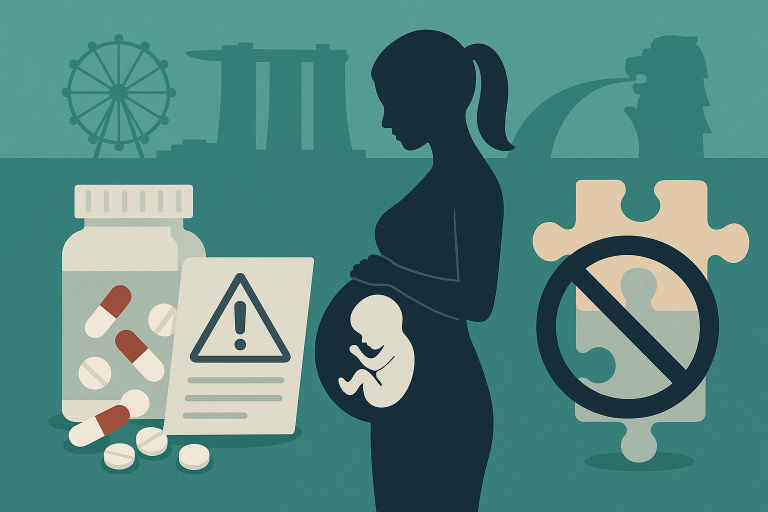Singapore’s Health Sciences Authority (HSA) has firmly rejected claims that paracetamol use during pregnancy causes autism in children, saying there is no scientific evidence to support such concerns.
The clarification came after US President Donald Trump linked Tylenol, the best-selling acetaminophen brand in the US, to autism earlier this week.
UK health officials also dismissed Trump’s claim, saying there was no proven link between paracetamol use in pregnancy and autism in children.
His comments triggered a wave of public discussion and prompted the US Food and Drug Administration (FDA) to begin a process for reviewing warning labels on acetaminophen products.
In contrast, Singapore’s regulator has stated the medicine remains safe for pregnant women if used as directed and within prescribed medical guidelines for treatment.
Trump remarks on paracetamol and autism
President Trump’s comments put a spotlight on paracetamol, one of the most widely used over-the-counter medicines in the world.
He told audiences in the US that pregnant women should avoid Tylenol, reviving an ongoing debate about whether acetaminophen could be linked to neurological disorders.
His remarks gained traction on social media platforms, with several posts repeating the claim that paracetamol use in pregnancy may contribute to autism in children.
The FDA responded quickly, saying it would move towards updating labels to highlight safety considerations, although it did not confirm any proven connection or establish new restrictions.
Singapore regulator’s findings
Singapore’s HSA said on Friday that it has not detected any safety issues linking paracetamol use during pregnancy to autism or other neurological conditions.
The regulator noted that while some studies have described possible associations, no scientific research has ever established a causal link.
At the same time, it pointed out that many large studies have found no such association at all.
Paracetamol therefore continues to be recommended for managing pain or fever in pregnancy, provided it is taken at the lowest effective dose and for the shortest necessary duration required by the situation.
The HSA added that untreated conditions such as fever can pose serious health risks to both mother and unborn child.
Its guidance highlighted that balancing maternal health and fetal safety remains a critical priority, and paracetamol continues to play an important role in that care.
Broader global response
The debate around paracetamol safety is not new, with researchers across different regions publishing findings over the years that occasionally point to potential associations with neurological issues.
However, medical authorities worldwide, including in Europe and Asia, have consistently maintained that no conclusive evidence exists.
Singapore’s decision to address the issue publicly shows how comments made by leaders in one country can influence public debate far beyond their borders.
The regulator’s response also reinforces the importance of relying on established scientific evidence rather than preliminary or inconclusive studies when assessing risks linked to medicines, maternal well-being, and child health during pregnancy.
The post Singapore also rejects Trump claim linking paracetamol in pregnancy to autism appeared first on Invezz

